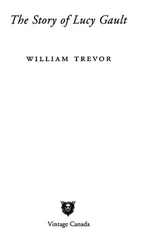Trevor, William - Children Of Dynmouth
Здесь есть возможность читать онлайн «Trevor, William - Children Of Dynmouth» весь текст электронной книги совершенно бесплатно (целиком полную версию без сокращений). В некоторых случаях можно слушать аудио, скачать через торрент в формате fb2 и присутствует краткое содержание. Год выпуска: 1976, Издательство: Penguin Publishing, Жанр: Старинная литература, на английском языке. Описание произведения, (предисловие) а так же отзывы посетителей доступны на портале библиотеки ЛибКат.
- Название:Children Of Dynmouth
- Автор:
- Издательство:Penguin Publishing
- Жанр:
- Год:1976
- ISBN:нет данных
- Рейтинг книги:4 / 5. Голосов: 1
-
Избранное:Добавить в избранное
- Отзывы:
-
Ваша оценка:
- 80
- 1
- 2
- 3
- 4
- 5
Children Of Dynmouth: краткое содержание, описание и аннотация
Предлагаем к чтению аннотацию, описание, краткое содержание или предисловие (зависит от того, что написал сам автор книги «Children Of Dynmouth»). Если вы не нашли необходимую информацию о книге — напишите в комментариях, мы постараемся отыскать её.
Children Of Dynmouth — читать онлайн бесплатно полную книгу (весь текст) целиком
Ниже представлен текст книги, разбитый по страницам. Система сохранения места последней прочитанной страницы, позволяет с удобством читать онлайн бесплатно книгу «Children Of Dynmouth», без необходимости каждый раз заново искать на чём Вы остановились. Поставьте закладку, и сможете в любой момент перейти на страницу, на которой закончили чтение.
Интервал:
Закладка:
He drank the chocolate. His father repeated that it would be better if he remained in the school rather than return to Primrose Cottage. ‘I’m sorry to be so little help,’ his father said.
When he’d finished the chocolate the Craw and Mrs Craw returned. Mrs Craw said: ‘We’re going to put you in the san for the night. In Miss Tomm’s room.’
There were awkward silences then, but they were only awkward afterwards, looking back on them; they were nothing at all at the time. His father put his arms round him again, and then Miss Tomm came into the study with his clothes and shoes for the morning, and his wash-bag. The wash-bag was dangling from one of her fingers, yellow and blue and red. ‘Here’s a nice one,’ he’d said in Boots in Dynmouth the time they’d bought it. ‘This one.’
He walked with Miss Tomm across the quadrangle and then along the path by the playing-fields, to the sanatorium. Leaves squelched beneath their feet, it was windy and drizzling slightly. He couldn’t help shivering, even though it seemed wrong to be affected by the cold.
It seemed wrong to fall asleep, but he did fall asleep. He was in a camp-bed beside Miss Tomm’s bed, and when he woke he didn’t know where he was. Then he remembered, and lay in the darkness sobbing, listening to Miss Tomm breathing. Once or twice she spoke in her sleep, once saying something about spoons, and once saying she loved someone. There was a smell of powder in the room, a smell that wasn’t like the smell of eau de Cologne and yet reminded him of it. When the dawn began to come he could see the outline of Miss Tomm in bed and when the light was better he could see her open mouth and the hairpins in her hair and her clothes on a chair quite close to him.
An alarm clock went off at half past seven and he watched Miss Tomm waking up and being surprised when she realized he was there. He watched her frowning, peering at him.
‘My mother died,’ he said.
He wasn’t going to cry. He wasn’t going to shiver like that. If he cried, it would be in the middle of the night again, quietly and to himself. He felt an emptiness in his stomach when he thought about it, an actual pain that came and went. But he did not want to cry.
He walked with Miss Tomm back to the school, carrying his pyjamas and dressing-gown and slippers. They would be late for breakfast, he said, because the bell had stopped ringing more than a minute ago. Mr Deccles had promised it wouldn’t matter, Miss Tomm said, and when they entered the dining-hall together he knew that the Craw had told the whole school what had happened. There was a silence when they entered the dining-hall, which continued while Miss Tomm went to the sideboard where the cornflakes were given out, while he himself pushed his way to his place.
The boys at his table looked at him, and although talk had begun again at other tables the boys at his remained silent. Quiet-Now Simpson, who was at the head of the table, didn’t know what to say.
Afterwards, during the day, boys said they were sorry. And much later on he was told that when the Craw had informed the school he’d said it would be better if boys didn’t mention the matter. ‘Just be kind to Fleming,’ apparently he’d admonished.
He went to see the Craw and said he wanted to go to his mother’s funeral. He didn’t want to remain at home after it, or go home immediately. He just wanted to return to Dynmouth for the funeral.
The headmaster shook his head, and for a moment Stephen thought he was going to say that this request would be impossible to grant.
‘Your father,’ the Craw said instead. ‘I just wonder what your father …’
‘Could you telephone my father, sir? Please, sir.’
‘Well. Well, yes, I dare say.’
There and then the telephone call was made. Impatiently, the headmaster’s stick-like fingers rapped the surface of the desk while he waited to be connected. It was clear he would have preferred not to telephone. It was clear that he considered it a nuisance, a boy having to go to a funeral, special arrangements made.
‘Ah, Mr Fleming. Deccles here.’ His voice softened by an injection of mournfulness, was less scratchy than it had been a moment ago. He repeated the request that had been made. He listened for a moment. He nodded and then he said, handing Stephen the receiver:
‘Your father’d like to speak to you.’
Stephen took the receiver from him, unable to avoid contact with the fingers that generations of boys hadn’t cared to touch either.
‘Are you really sure, Stephen? Mummy wouldn’t have –’
‘I’d like to come.’
Miss Tomm put him on a train, his father met him at Dynmouth Junction and drove him back to Primrose Cottage. Later they drove from the cottage to Dynmouth, to the church of St Simon and St Jude, where Mr Featherston conducted the service. The clergyman gave an address, referring to the death as a tragedy. ‘Forasmuch as it hath pleased Almighty God of His great mercy,’ he said softly, ‘to take unto Himself the soul of our dear sister, we therefore commit her body to the ground.’
It was sunny in the graveyard. Yellow and brown leaves were scattered everywhere. It was unbelievable that she was lying in the gleaming coffin which four men were lowering on ropes. It was unbelievable that her body was going to rot, that never again would she be seen or heard, that never again would she kiss him. He wasn’t able to prevent himself from crying. The more he held it all back the worse it became. He wanted to cry loudly, to run to the coffin and embrace it, to speak to her even though she was dead.
‘Come now, Stephen,’ his father said, and the people standing about – relations and friends, strangers some of them – turned away from the grave.
The clergyman put his hand on Stephen’s shoulder. ‘You’re a brave little boy,’ he said.
His father drove him all the way back to Ravenswood Court, and the silence of the journey made him realize why his father hadn’t wanted him to come home for the funeral. ‘I’ve got a few sweets,’ Miss Tomm whispered in the hall of Ravenswood. ‘Lime and lemon sherbet. D’you like sherbet, Stephen?’
Miles of landscape had gone by, the silence in the dining-car had been a lengthy one. The stout waiter broke it by asking if everything had been all right. He flicked a page of the pad he held and swiftly wrote them out a yellow bill. ‘Obliged to you, sir,’ he said, giving it to Stephen.
They each placed money on the table, and the waiter collected it up and thanked them. Out of the ugliness of the divorce and the death it seemed only fair to Kate that there should come this happy ending. Her mother had been deserted. Stephen’s father had suffered a horrible tragedy. She loved her mother, and she liked Stephen’s father better than her own. She liked him because he was quiet and gentle. He had a smile she liked, he was clever: an ornithologist with a passion for the birds he wrote books about. With Stephen, she’d watched him cleaning oil from the feathers of seagulls. He’d shown them how to set a stonechat’s broken wing.
In the house they were to share all four of them deserved their happy ending: an idyll, Kate had said to herself ever since she’d known about the marriage that had been planned, repeating the word because she loved the sound of it. All the pain there’d been would be soothed away, since that was what idylls were for.
There were two approaches to Sea House, one from the road that rose steeply from Dynmouth and led to Dynmouth Golf Course and then on to Badstoneleigh, the other from the seashore, by a path that rose more steeply still, sharply winding around the contours of the cliff-face. The latter surfaced at the eleventh green and continued by the turf’s edge until the turf gave way to a high wall of weathered brick, touched with Virginia creeper. This bounded a garden that was uniquely rich, a streak of acid soil in the surrounding lime, a fluke of nature that generations in Sea House had taken advantage of. Set in an archway in the wall, a white wrought-iron gate led to a path through the shrubbery of azaleas for which the garden was reputed but which, in April, was only a mass of green. Magnolias and tree mallows stood starkly, with dripping leaves; rhododendrons glistened, heavy with buds. Ahead, the garden inclined upward, stretching extensively over three levels, with steps and banks of heather separating one surface from the next. Only daffodils and crocuses were in bloom now, and spring heathers and some winter jasmine. In the distance, to the left of the house and behind it, glass-houses leant from the high brick wall, with vegetable-beds around them; nearer, a paved herb garden had box hedges and a sundial. There were rose-beds and a white summer-house. A monkey-puzzle stood solitary on a wide expanse of lawn.
Читать дальшеИнтервал:
Закладка:
Похожие книги на «Children Of Dynmouth»
Представляем Вашему вниманию похожие книги на «Children Of Dynmouth» списком для выбора. Мы отобрали схожую по названию и смыслу литературу в надежде предоставить читателям больше вариантов отыскать новые, интересные, ещё непрочитанные произведения.
Обсуждение, отзывы о книге «Children Of Dynmouth» и просто собственные мнения читателей. Оставьте ваши комментарии, напишите, что Вы думаете о произведении, его смысле или главных героях. Укажите что конкретно понравилось, а что нет, и почему Вы так считаете.










